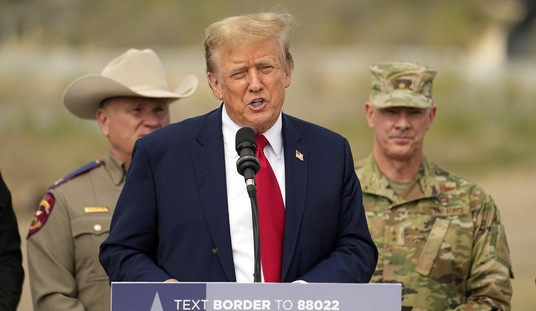On Thursday, Robert F. Kennedy Jr. is expected to testify before a House Judiciary Subcommittee—a hearing that will examine the federal government’s role in censoring Americans. The appearance on Capitol Hill could boost the candidate’s newfound popularity on the right. According to a recent Economist-YouGov poll, the presidential candidate enjoys a 56 percent favorability rating among Republicans.
But as a small business owner, the traction RFK Jr. is receiving is concerning.
Although he artfully delivers a handful of attractive talking points around free speech, pandemic lockdowns, and cultural issues that resonate with the rightwing base, RFK Jr. is far from being a free market policy champion. Conservative voters that care about less regulations, lower taxes, and common-sense energy policies should beware.
RFK Jr. is an unapologetic cheerleader of piling more government regulations on businesses—frequently using environmentalism as a justification. While we all support clean air and water, militant environmentalism threatens to upend the U.S. economy and have an outsized negative impact on entrepreneurs that thrive in a free market.
For example, the candidate supports the “Green New Deal”—a legislative framework spearheaded by Rep. Alexandria Ocasio Cortez (AOC). Unveiled in 2019, the agenda is socialism wrapped in a green cloak. The plan not only calls for using the power of government to dictate a shift to 100 percent renewable energy, but includes government-provided college, housing, jobs, and food.
Recommended
What does RFK Jr. think about those who support common-sense environmental stewardship over climate hysteria? In 2014, it was suggested that conservative groups and corporations that question the prevailing climate change narrative should be handed the “death penalty.” That doesn’t sound like free speech to me.
On the taxes front, the candidate is no friend to small businesses and the free market.
In early 2020, RFK Jr. echoed “fair share” tax proponents like Sen. Elizabeth Warren and AOC—arguing that “wealthy people” and corporations “ought to be paying more in taxes.” The top 10 percent of earners are already responsible for paying nearly three-quarters of tax revenue. Ballooning rates further will have a chilling effect on job creation and compromise capital investment in the next generation of businesses that will line Main Streets.
Perhaps the most dramatic of RFK Jr.’s policy planks is his strong aversion to reliable domestic energy production. Similar to the Biden administration, the candidate has demonized oil at every turn while pushing for policies that would inflate the price of transporting goods for small businesses.
In 2018, RFK Jr. celebrated a Supreme Court decision that thwarted an oil pipeline in New York, and he also opposed the Keystone Pipeline, which the Biden administration halted in 2021. He’s even called on New York to “ban” ExxonMobil from the state, claiming the company's actions amounted “to a crime against humanity.”
The candidate also opposes hydraulic fracturing, a technique utilized to support two-thirds of natural gas and about half of oil production in the U.S. “Green” alternatives are all fine and good, but it’s clear windmills and solar panels are not ready to take center stage and put the country’s energy needs on its back.
RFK Jr. is gaining significant traction among Americans by tapping into growing frustrations around free speech, censorship, and anger around how the pandemic unfolded. While those grievances are more than warranted, center-right Americans should be careful not to overlook that RFK Jr. is no friend to small businesses and is far from being a free market champion.
Joseph Semprevivo is the owner and manager of Joseph’s Premier Real Estate, partner at the Job Creators Network Foundation, and best-selling author of "Madness, Miracles, Millions." He is also the former state economic development commissioner of New Mexico.


